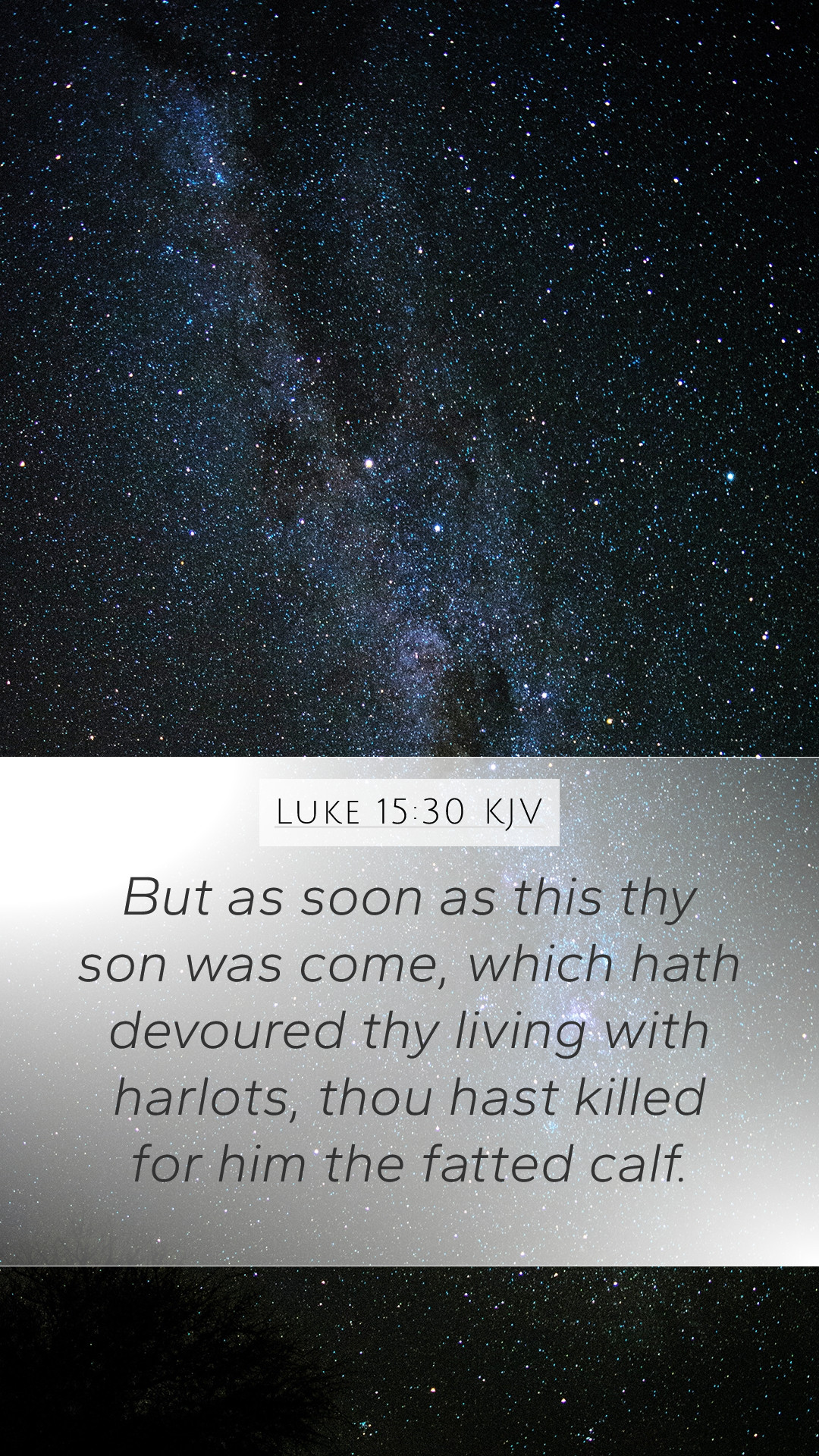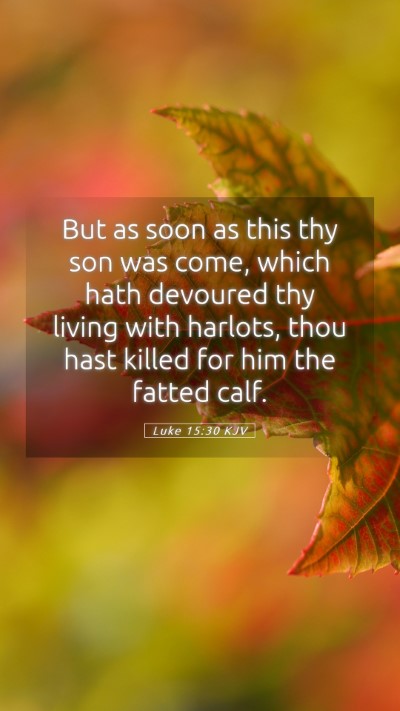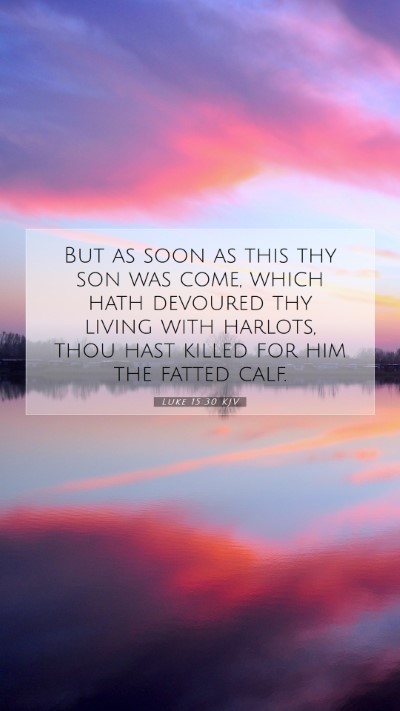Understanding Luke 15:30
Luke 15:30 states: "But as soon as this son of yours came, who has devoured your livelihood with harlots, you killed the fatted calf for him." This verse comes from the Parable of the Prodigal Son, a profound teaching of Jesus that illustrates the themes of grace, repentance, and forgiveness.
Key Themes in Luke 15:30
- Comparison of Two Sons: The older brother's resentment highlights the distinction between obedience and grace.
- Jealousy and Injustice: His reaction reveals the struggle of those who feel overlooked or unappreciated.
- The Nature of the Father's Love: The father's acceptance of the wayward son exemplifies unconditional love.
Commentary Insights
Matthew Henry's Commentary: Henry emphasizes that the older brother's anger is rooted in his sense of justice, seeing only the surface appearance of the situation. He argues that this response can often reflect our own attitudes towards grace bestowed on others who we believe are less deserving.
Albert Barnes' Commentary: Barnes points out that the older brother’s statement shows a distorted understanding of merit in the Father's eyes. He notes that the father's actions were not about earning love from the son but about celebrating repentance and restoration.
Adam Clarke's Commentary: Clarke elaborates on the older son's feelings of betrayal and his failure to understand the father's joy in receiving the lost son. He notes the importance of recognizing the joy of mercy over law and the celebration of redemption over resentment.
Application and Insights
Luke 15:30 acts as a call for self-examination among believers, inviting them to reflect on their reactions to the grace shown towards others. It poses critical questions: How do we respond when someone we deem undeserving receives mercy? Do we act like the older brother or the forgiving father?
In-depth Bible Verse Analysis
The parable serves as an allegory for the Kingdom of God, where God's mercy supersedes human expectations. The older brother’s resentment can serve as a warning against self-righteous attitudes that fail to celebrate the spiritual rebirth of others.
Cross References
- Matthew 20:1-16 - The Parable of the Workers in the Vineyard
- Luke 15:1-2 - The context of Jesus' teaching to the Pharisees and scribes
- Romans 3:23 - The universal nature of sin and need for grace
- Galatians 6:1 - Restoration of those caught in sin
Conclusion
In summary, Luke 15:30 encapsulates the broader message of the Prodigal Son parable, urging believers to reconcile their sense of justice with the overwhelming grace of God. Not only does this verse speak of familial relationships, but it also extends to the dynamics of divine love and mercy towards sinners.


